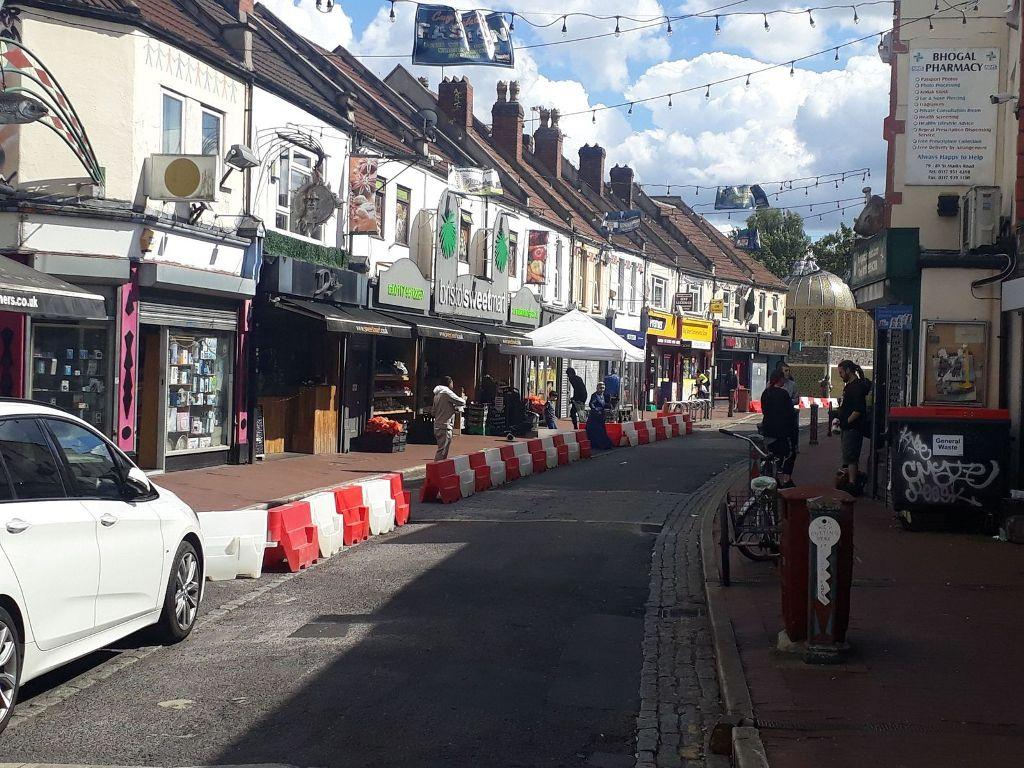The Society has responded to consultation on a number of active travel schemes proposed by the Council. The schemes are of two types: high streets (vehicle restrictions and public realm improvements) and point closures (closure to private vehicles whilst allowing free passage for those on foot or bike – sometimes called filtered permeability). The consultation was in the form of a series of engagement surveys; the Society commented generally, not on specific schemes. These schemes follow post-Covid temporary schemes implemented between June and August 2020; indeed some of the schemes consolidate those temporary schemes. The image is of St Marks Road, showing the temporary changes from June 2020.
The Society broadly welcomes street changes that seek to make places more welcoming for people on foot and on bike, and encourage active travel. But we felt we needed more information to fully assess the impact of the schemes, for instance:
- The big picture: given the good work on the Bristol Transport Strategy, we would have liked to have seen greater specific engagement between the ATF interventions and the transport strategy and work on ending air quality breaches. Although the first-round ATF schemes have been in place since Summer 2020, it was not clear how experience with those schemes has been used to inform choices on the second-round proposals.
- Traffic and pollution impacts: we felt it would have made for a more rounded consultation on the specific suggestions involving traffic restrictions if the impacts and consequences of the individual and cumulative changes had been set out. It was not acceptable for traffic and pollution to be displaced from one street to another, particularly onto residential streets.
- Visual impact: given the value to the city of the beauty of its built environment, it was disappointing that amongst the aims and objectives set for the scheme there were none on visual amenity or conservation of heritage assets.
BCS offered to discuss any aspect of this policy further with the city council to improve proposals going forward.
Sue Ellis

